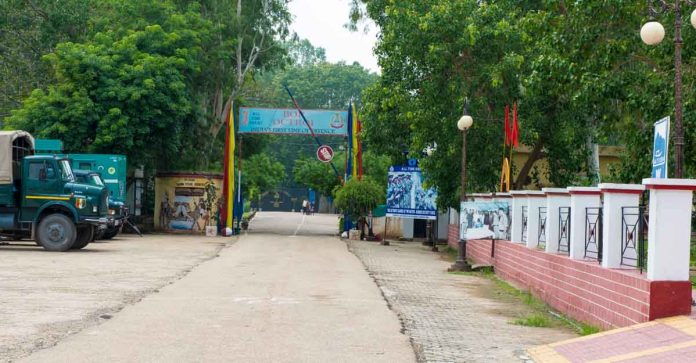The recent decision to expand the Beating Retreat ceremony at the Octroi Border Outpost (BOP) in Suchetgarh, Jammu, marks a significant development with far-reaching implications. This seemingly simple act of increasing the ceremony’s frequency from two days to four holds the potential to not only bolster national pride but also ignite a spark of economic and cultural regeneration in the border region. Border regions often face unique challenges, but they also possess immense potential for economic growth and cultural exchange. The expansion of the Beating Retreat ceremony demonstrates a recognition of this potential and a commitment to harnessing it for the benefit of both residents and visitors to the region.
The Beating Retreat ceremony is a powerful symbol of the unwavering commitment of our brave BSF personnel. Witnessing this spectacle firsthand evokes a sense of awe and appreciation for the sacrifices made by those who safeguard our borders. Expanding the ceremony’s reach allows a larger audience to connect with this spirit of patriotism, fostering a deeper understanding of the significance of border security and the dedication of our forces. By increasing the frequency of the ceremony to four days a week, with diverse activities and events planned, the Border Security Force aims to not only showcase the rich cultural heritage of the area but also stimulate economic growth and promote tourism. By incorporating diverse cultural performances, showcasing local cuisine, and offering souvenir shopping opportunities, the ceremony transforms into a vibrant platform for showcasing the rich cultural tapestry and heritage of the area. This, in turn, attracts visitors from far and wide, injecting much-needed economic stimulus into the local community. This move aligns with global trends where border areas are increasingly recognised as valuable tourism destinations, offering unique experiences and insights into diverse cultures. The decision to extend the ceremony at the outpost is particularly timely given the global recognition of the area for its picturesque Gharana Wetlands and the historic Shri Raghunathji Temple. These attractions, coupled with the planned activities during the extended celebrations, are poised to draw a larger number of tourists, both local and non-local, to the region.
It is crucial to acknowledge the consistent demand from residents of the border area for an increased frequency of the ceremony. This initiative demonstrates a sensitivity to their aspirations and a commitment to addressing their concerns. By actively involving the local community in the planning and execution of these extended celebrations, a sense of ownership and participation can be cultivated.
Border tourism, when managed effectively, has the potential to create a ripple effect of economic benefits, including job creation, infrastructure development, and revenue generation. Moreover, it fosters greater cross-cultural exchange and understanding, contributing to peace and stability in the region. The commitment of the administration to support the elevation of the region’s profile as a must-visit destination on the tourism map is indeed laudable. It signifies a broader vision to leverage the unique assets of the border area for sustainable development and prosperity. By focusing on tourism activities, the region can diversify its economy and reduce dependence on traditional sectors, thereby ensuring resilience against economic shocks.
However, it is essential to recognise that the success of this initiative will depend on effective implementation and collaboration between various stakeholders, including Government agencies, local communities, and the private sector. Infrastructure development, marketing efforts, and capacity building will be crucial aspects to consider in realising the full potential of border tourism. Furthermore, sustainable tourism practices must be prioritised to preserve the natural and cultural heritage of the region for future generations. This includes measures to minimise environmental impact, promote responsible tourism behaviour, and ensure equitable distribution of benefits among local communities. The fact is that with concerted efforts and collaboration, border tourism can catalyze inclusive development, peace, and prosperity in the region.


